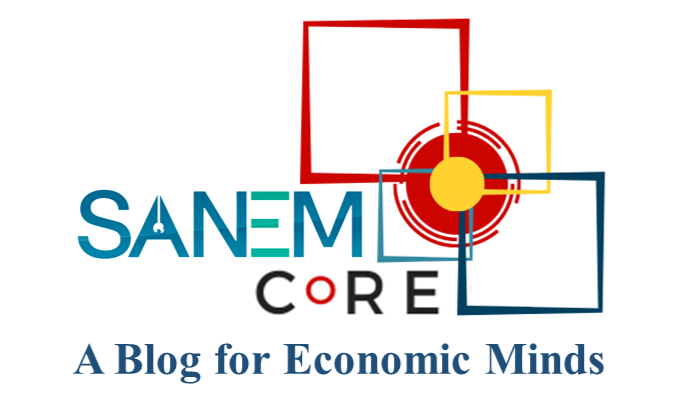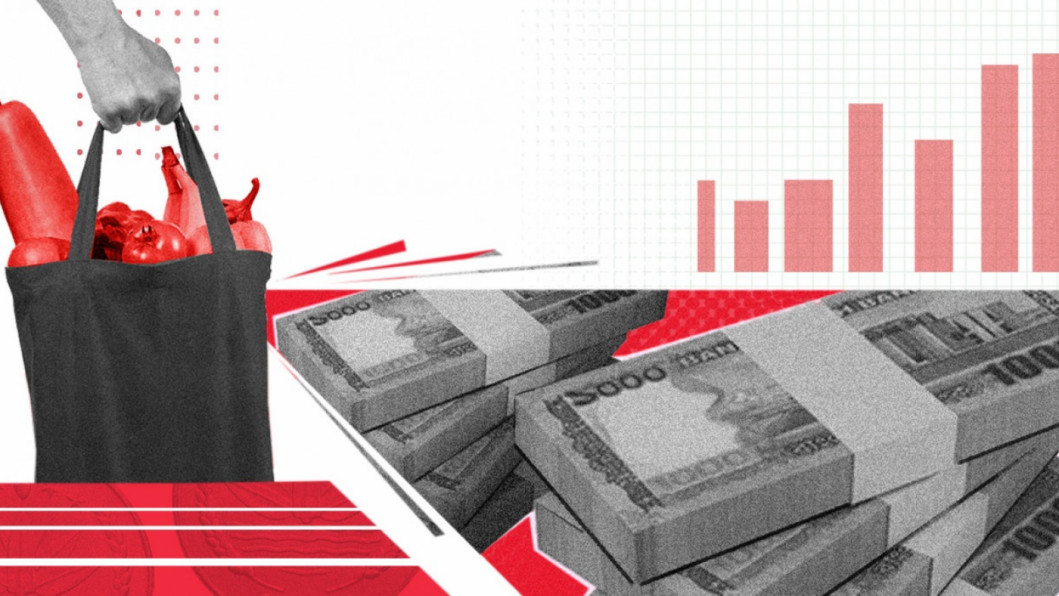As Bangladesh steps into a new year and looks forward to confronting ongoing economic and political challenges, the need for objectively assessing the country’s current economic realities cannot be overstated. The economy is experiencing several complex challenges that require a cohesive and strategic approach. Key priorities for the upcoming national budget must also be outlined while underscoring the importance of a broader reform agenda.
The source of the economic hurdles lies in the unrelenting inflationary pressure which does not seem to recede. The Bangladesh Bank has resorted to hiking interest rates on many occasions in the past two years, with little effect on containing inflation. As a result, Bangladesh has been a major failure, whereas many neighbouring countries have successfully controlled inflationary pressure. While the past regime faced allegations of either inaction or improper action in combating inflation, the present interim government has also not been able to show any success so far. The failure emanates from the lack of coordination among monetary policy, fiscal policy, and domestic market management. By now, policymakers must understand that without a synchronized approach, these measures remain fragmented and ineffective. For the interim government, containing inflation and providing solace to low-income people must be the top priority.
Exports and remittance inflows have provided some respite, with recent performances promising. This has led to a marginal improvement in the position of the foreign reserve. The key, however, to sustaining this momentum is addressing the macroeconomic instability, labour unrest, and tensions that have bedevilled many factories. Furthermore, private investments remained stagnant in the context of high and rising interest rates and, an unfriendly business environment with unstable law and order. That has had a strangulating effect on job creation and industrial growth.
The foreign exchange market is another area of concern. While the Bangladesh Bank is signalling a shift toward a more market-driven exchange rate policy, careful timing and implementation are necessary to avoid exacerbating import costs and inflationary pressures. The transition should be well complemented with a properly communicated strategy in which businesses and consumers are duly prepared for it.
However, the absence of strong and resolute economic management from the interim government hasn’t helped much in addressing the major economic challenges. The apparent lack of coordination in major economic issues raises concerns about the mechanism for making and implementing policy. It is high time for the interim government to show seriousness in addressing the challenges through comprehensive and effective interventions.
The White Paper Committee’s recent report, submitted on December 1, has shed light on systemic corruption, illicit money transfers, cronyism, and rent-seeking activities that have plagued development projects, including mega projects, under the past regime. This report is a major call for the interim government to take decisive action against these entrenched practices. By implementing key recommendations from the report, the government can begin to address the root causes of inefficiency and corruption. This includes reforms in critical economic, political, administrative, and judicial domains — reforms that must be reflected in the government’s allocations and priorities.
While the mass uprising on August 5 had created optimism about a unified national effort toward reform and nation-building, the reality increasingly looks beset on all sides. Political tensions and disagreements over the scope of reforms, the duration of the interim government, and the timing of the next national election threaten to derail the focus on economic priorities. A confrontational political climate risks diverting attention from critical issues, including the persistent inflation that continues eroding ordinary citizens’ purchasing power.
With these challenges in mind, policymakers must take actions that offer immediate economic relief and facilitate broader reform measures. Measures include coordinated efforts to contain inflation, cushion the effects of inflation on the most vulnerable through expanded social safety nets, and address supply-side drivers of inflation through investment in agriculture, energy, and transportation infrastructure.
At the same time, policymakers should lay the sound foundation for far-reaching reforms in key economic, political, administrative, and judicial domains. Apparently, there is some consensus on the direction of economic reforms, such as systemic inefficiency in the management of public finances, overhauling the taxation sector, restructuring the banking sector, and modernizing trade and investment policies. However, the directions of political, administrative, and judicial reforms remain far more contentious and marked by disagreement.
The challenge is to make sure that debates and disputes on reforms in the political, administrative, and judicial domains do not weaken the momentum to move ahead with economic reforms. These disagreements, if not carefully managed, risk overshadowing or derailing efforts to address structural economic challenges that are essential for ensuring stability and growth.
It is, therefore, incumbent upon the interim government to stay focused on economic reforms with the same intensity as opening up dialogue and consensus-building on general institutional reforms. All these competing priorities require clear leadership, effective communication, and a commitment to incremental progress.
This article was first published in the January, 2025 edition of the Thinking Aloud



RECENT COMMENTS